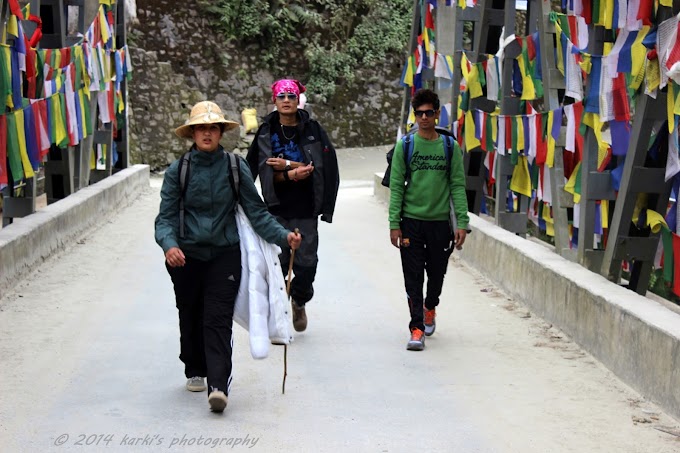It seems that 3 words; tourist, traveller and exculsionist are synonymous. In tourism literature, these terms are used every now and then that is why the distinction between them is necessary. For statistical measurement , it is ought to be familiar with each terms. Various surveys and researches need to have to clarify the distinction among them. An effort has been made to make clear difference among these terms.
The first definition about tourists (
foreign) was drawn on 1937 by the league of nation’s Committee of Statistical
Experts;
— ‘Any person visiting a
country, other than in which he usually resides, for a period of at least
twenty four hours.’
— ‘Persons travelling on
holiday for a period of less than twenty four hours are treated as
excursionists.’
The definition of foreign tourist included persons
travelling for pleasure or specific interests, meeting/representation ,business
and the people in sea cruises. Whereas it excluded the people seeking permanent
work or residence, students and passengers passing through the country without
stopping. Later the definition was adapted for domestic purpose also; tourist is a person visiting a
place for a period of at least
twenty-four hours.
The definition of the League of Nations was
widely accepted and it’s essence is still relevant. In 1963, the United Nations Conference on Travel and Tourism (rome)
proposed the following definitions of visitor, tourists and excursionist;
— Visitor denotes a person visiting
a country other than that in which he has his usual place of residence, for any
reason other than following an occupation remunerated from within the country
visited.
— “Tourists are the visitors staying at least
twenty four hours in the country visited and the purpose of whose journey can
be classified under one of the following headings:
- Leisure( recreation, holiday, health,
study, religion and sports)
- Business, family, mission, meeting”
— Excursionists are temporary visitors
staying less than twenty four hours in the country visited (including travelers
on cruise)
The definition was
accepted by international travel statistics experts as it clearly distinguishes
visitors, travellers and excursionists. In 1968, IUOTO approved the definition and presented the
clear distinction as;
Besides this classification, various other
tourism scholors have made attempt to analyse the categories of tourism. Smith, L.J. Stephen(1978) suggested the typology of tourists as;
— Explorer
— Elite
— Off beat
— Incipient Mass
— Mass
— Charter
Here, the hierchy suggest the level of
luxury and amenities the tourists seek for.
More we go to the bottom, the expectation and demand for facilities
increases. It starts with the explorer who intends to find new places and
activities himself whereas the last one or charter demands for super luxurious
means and everything is expected as the interests of the person who travels.
In tourism literature, Other popular types
of tourists are cited every now and then;
— Backpackers; independent and self organised budget travellers
— Organised; tour activities
are organised by tour company, higher spender
— Hedonists; travellers who
seek only pleasure
— Volunteer; interested to
work for community
— ...............






Thanks For Sharing This Information With us
ReplyDeleteNational Diploma In Hospitality Management Graduate Diploma Of Management Institute Of Hospitality Australia Australian Skills Management Institute Civil Construction Design Diploma In Australia Graduate Diploma Of Management Learning certificate iv in kitchen management australia cert iv commercial cookery